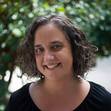Unschooling Grows Far Beyond “Not School”
It’s pretty typical to move through adulthood staying generally disengaged from life: you do this and that and the other thing, like get a job, get married, have kids, send them to school. It’s quite easy to do—the conventional treadmill carries you along and delivers you to each stop without much effort of your part. Yet for many, there’s an inner conflict between what lives in their heart and the societal expectations in their head. Many manage to ignore it until midlife when, as children move out and things slow down, they find themselves evaluating their life so far and get tangled up in the aptly named midlife crisis. Others are drawn to examine the disconnect earlier, often following the hearts and minds of their children. No matter the path that led you to unschooling, with it you are choosing to step off the conventional treadmill. And once you’ve taken that first step it becomes harder and harder to continue down that well-worn path of convention—unschooling soon asks us to examine the deeper questions.
When we choose unschooling we likely do so with the intention of opening up the possibilities for our children, of giving them the space and the support to forge their own path through childhood. Yet as we watch them in action, often spellbound, our minds begin to stretch even more and soon we start asking that of ourselves. As unschooling parents we espouse the joy of learning, champion the idea of lifelong learning … and we begin to realize that it applies to us as well. Our perspective grows. Who am I? What is my path? What kind of parent do I want to be? It becomes apparent that even as adults we are not “done”; we can learn and change and take small steps each day towards being the person we want to become.
We see our children exploring life with zeal. We join them. They are enthusiastically vocal in celebration of even the smallest victories, and in the next moment they are struggling with frustration and deep sadness as things go awry—each experience is expressed from the depths of their soul. We begin to reawaken, to remember what it means to be so directly engaged with life. It is beautiful! And we begin to feel protective of our children, not wanting them to lose that openness, that depth of feeling, both joy and sorrow, as they get older. It begins to dawn on us that if we so eagerly want them to retain that lust for life into adulthood, if that’s what living can look like in all its glory, as adults, couldn’t we be living that too? Yes!
With that realization we are drawn to exploring ourselves, to finding that depth of engagement in life, with all its twists and turns and ups and downs. For maybe the first time we really see the value in nurturing our spirit. It stuns us. We marvel that the journey we started to fully and deeply support our children and their learning has turned so completely around and we are learning so much from them about being alive and fully engaged with life. Often we didn’t even realize we were encased in a layer of conventional goo, a dour mix of expectations and judgment and fear, until we managed to wipe some away and rediscover that the world is fresh and interesting and inspiring!
We are always learning. The learning is in the living. Looking back, I realize the biggest gift we give to our children and ourselves with unschooling is time. Time to live and to learn and to do it all again the next day, the next week, the next month. Time to cocoon, time to process, time to reflect. Time is at our disposal; it is not our master. When you first begin unschooling it can feel like such a huge leap—one day the kids are going to school and the next day they aren’t. Or they hit school age and the first day of school comes and they don’t go. It is huge! And faced with that momentous act, it’s so easy to get caught up in the idea that it must be met with equally huge goals and plans and activities.
Instead, try baby steps. Gradual, yet determined, steps toward the person you want to be in this new unschooling family paradigm. And remember to take time for reflection, for turning your thoughts and observations over in your mind, for playing with the puzzle pieces and seeing how they fit together. It is in this time of contemplation that so many connections fall into place. And don’t fret that you need swaths of alone sitting time to think—I recall many a-ha moments while doing the dishes, or in the shower, or tidying up the toys. 
What else do we discover? That no matter how strongly we wish to know and understand it all right now, to have this life thing figured out—what makes us tick, what brings a smile to our face, and why fear sometimes trickles in—it is a process, a cycle. Round and round and round. As a parent, as a person, you never reach the end of learning because with each iteration through another question or challenge our children are older and more experienced, and you are older and more experienced. New things are coming into your lives and others are dropping out, all of which bring new insights. There’s always more to learn and understand—about ourselves, about others, about the world.
And somewhere along the line it dawned on me that it’s not about figuring it all out so I can finally, from that moment on, live a happy life.
This process IS a well-lived life.



